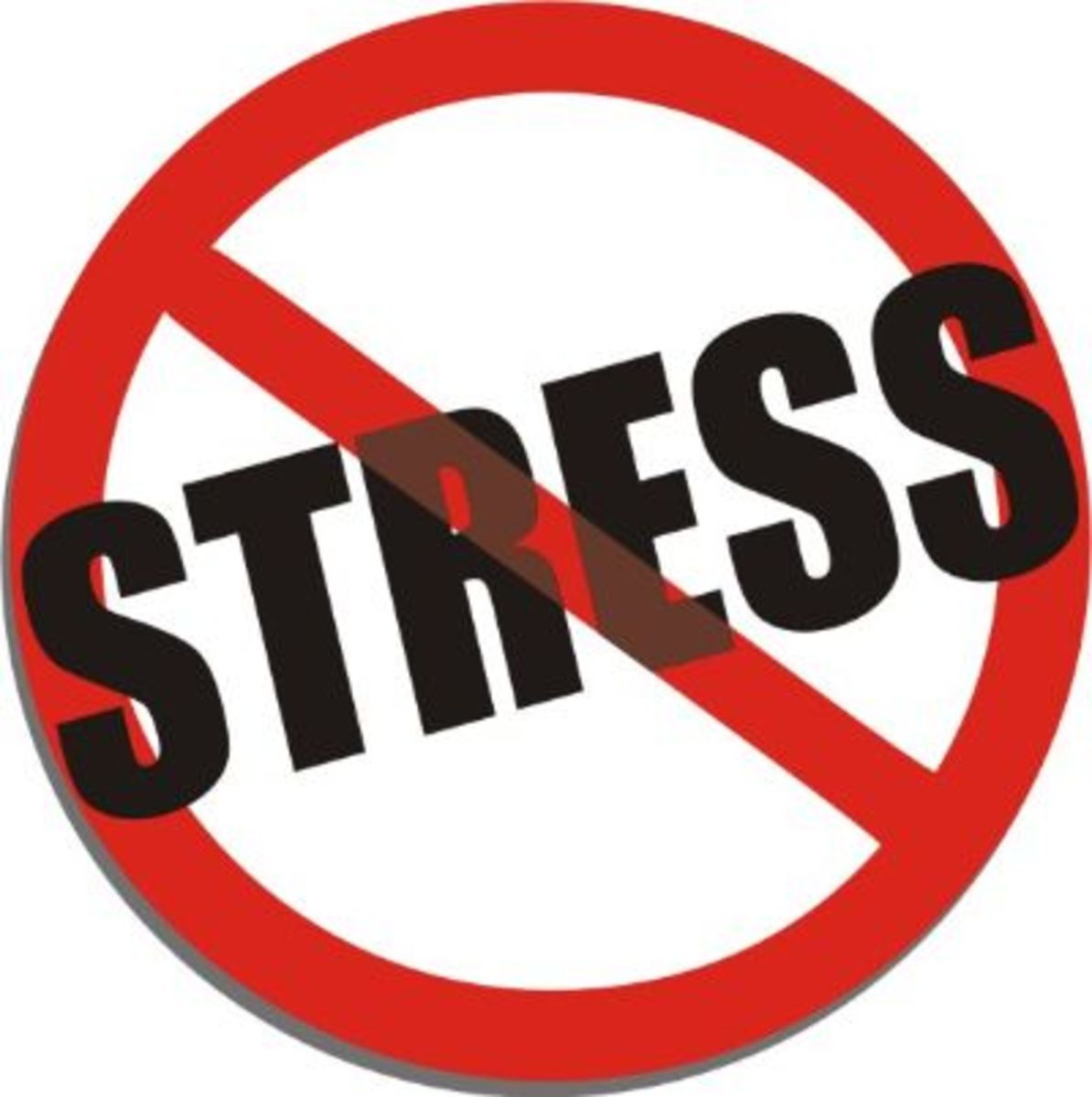Chronic Stress--Hazardous to Your Health
Is there too much harmful stress in your life?

Are you Aware of your Stress Triggers?
What a day you’ve had! You were late getting the kids to school, which made you late to work and, subsequently, late to an important staff meeting. The boss calls you into his office afterward to dress you down for your tardiness, which embarrassed him in front of a visiting corporate bigwig. Your workday slides downhill from there.
As you hurry home from work later in rush hour traffic, your car overheats on the freeway. You have to wait for a tow truck and a taxi, during which time you agonize about the blow to your budget from taxis every day until your car is repaired.
Arriving home two hours later than the norm, you’re met at the door by your teenaged son, who informs you in two sentences that (1) he’s somehow managed to break the hardware in his mouth that cost thousands of dollars, and (2) the air conditioner quit sometime today and the interior temperature is 98 degrees.
Small wonder you take to the sofa with a raging headache and icepack on your head, daring anyone in your family to come near you.
Most people have days that rival the one just described. Everyone in our modern world must cope with some degree of stress. It’s part of life. Just think of people who have been living in war-torn areas for years or those residents of third-world countries for whom getting clean water and food to eat takes all their efforts, sometimes to no avail. When compared to that sort of stress, your day looks like a walk in the park. Except that, to you, it doesn’t feel that way.
Stress in small or infrequent amounts isn’t likely to harm you, and may even be beneficial by serving as motivation to get things done without procrastination. However, prolonged stress, accompanied by the well-known “fight-or-flight” syndrome, can actually make you ill. The list of stress-induced physical and emotional symptoms is long, including headaches, stomach upsets, depression, crying spells, muscle spasms, insomnia, loss of hair, rashes and many more that may surprise you. Some research studies have linked continuing stress to impaired functioning of the immune system and increased risk of serious illnesses, such as heart disease and cancer.
Traumatic events, such as divorce or other relationship breakups, death of a loved one, or loss of a job can make a person sick from stress. This is expected. However, what about major happy life events? Can they also cause stress? Yes. Such pleasant occurrences as marriage, the birth of a baby, moving into a new home or a job promotion can increase the tension in your life to a harmful level. If a combination of tension-creating things occur, your whole system may be on stress overload.
The human body isn’t designed to accommodate stress over a long period of time. Every time you tense with anxiety, your body reacts by releasing hormones that make your heart beat faster and your blood vessels constrict. Your blood pressure may rise. These are the effects of the “fight-or-flight” syndrome, which are relatively harmless when they happen infrequently, but can create hypertension and lead to life-threatening strokes, heart attacks, even kidney disease when part of your day-to-day life.

How can you Manage Stress?
Now that you realize the dangers of too much stress, what can you do to lessen it? Start by identifying all the sources of stress in your life. Some you may be able to put your finger on readily: jangling phones, work problems, traffic jams, a quarrel with your spouse. These are small irritations that add up to a feeling of anxiety and tensed muscles, sometimes an overpowering feeling of anger, which creates a feeling of guilt, so you repress it. That’s more fuel for the stress machine.
Other stressors may be more difficult to pinpoint. The key to routing them out is to become more aware when and how your body begins reacting to stress. Then ask yourself, “What just happened here? Why am I feeling this way?” Over a period of days, you may begin to recognize a pattern. You may see that certain people or situations always cause you to respond with tension.
Once you’ve established the causes of your chronic stress, the next step is to learn to cope with it in order to lessen its negative effects. Unfortunately, you weren’t born with the ability to cope with stress. Your personality and temperament have a great deal to do with how well you are able to do it once you gain awareness of the triggers. Controlling stress, however, is something you can learn, even if you’re one of those individuals fashioned by nature to be easily distressed and emotion-driven.
If a situation is manageable, do what you can to view it accurately and objectively. Next, try to resolve it. If it is beyond your control, your goal should be to help your body cope with the stress created so it dissipates and doesn’t harm you. There are some proven ways to do that.
It is physically impossible to be both relaxed and tense at the same time, so your first “lesson” will be learning to relax on cue. You should practice the technique of conscious relaxation at home, even if you have only ten to fifteen minutes to yourself.
Go into a quiet dark room and shut the door. Lie down or lean back in a comfortable chair. Close your mind and empty it of thoughts. If this is difficult for you to do, silently repeat a number over and over again like a mantra, “One, one, one, one, one…..” Don’t let worries about unpaid bills or what you should be making for dinner creep in and sabotage your relaxation.
Next, take deep breaths. (When tense, we tend to breathe shallowly.) Fill your lungs, then slowly exhale. Let your body consciously relax by sections—your head, your neck, one shoulder, the other shoulder, one arm, one wrist, one hand—and so on. Let each section go completely limp until your entire body is totally relaxed. With practice, this technique becomes easier and faster to accomplish. Your objective is to ultimately be able to relax the tension in all your muscles just by telling yourself, “Relax.”
Positive visualization is another method of relaxation. What scene makes you feel peaceful? A field of daisies swaying softly in the breeze beneath a blue sky with fluffy white clouds? The shimmering ocean with sunrays glinting off its surface? Whatever it is, close your eyes and concentrate with all your senses on this scene. Smell the flowers or sea air. Feel the texture of grass or sand between your toes. Look at this panaromic scene on the backs of your eyelids and enjoy it. Soon you will feel relaxed.
Here I must add a stress-reducing activity that I was reminded of by justmesuzanne, who recently published a hub about choosing aquarium fish. (See link below.) The hub's accompanying photo of fish swimming is so relaxing I told her just looking at it for a few minutes probably lowered my blood pressure by a couple of points! Actually, watching an actual aquarium is an excellent stress reducer which has been proven to lower blood pressure. It doesn't have to be a large aquarium. A small tank of several fish to watch as they swim will relax you. It's much better for your peace of mind than watching TV. Thanks, Suzanne!
Regular exercise promotes a feeling of well-being by releasing the hormone beta endorphin. It produces a natural “high” and causes you to feel happy. One of the best means of exercise is also the most simple: walking. You can do it almost anywhere, without special clothing or equipment, and it’s free.
Set priorities. Don’t try to be superhuman and accomplish everything. Some tasks are not as important as others. You may have to make choices between activities that are important and those that can be delayed or eliminated. It’s okay to say “no” when asked to serve on another committee or take on another responsibility for which you don’t have time. It’s important to set aside some personal time for yourself, to do the things you enjoy doing. Schedule your life so you don’t have to constantly rush. It may sound trite, but it’s true just the same: You need to stop and smell the flowers.
Develop a sense of humor. Laugh at situations that might otherwise get you down, and learn to laugh at yourself, too. In fact, laughing often is some of the best stress-busting medicine available. This will give you a better perspective about events and shrink a lot of stress-causing mountains into management molehills.
Develop a support system of family and friends. You need a confidante when the going gets rough. Don’t try to hold in all your feelings, especially irritations that can, over time, turn into hostility. You aren’t a pressure cooker, and you don’t need all those emotions building inside you just waiting to explode. Having someone to talk to about stressful issues provides an emotional release valve. Verbalizing them takes away their power to stress you, and this increases your emotional well-being.
Stress won’t disappear from your life, and remember, a certain amount of good stress helps us get things done. You will still have “one of those days” every so often. If you learn to control your stress level and how you react to stressors, you’ll find that things don’t bother you so easily. Stress management is a very important component of staying healthy.
Thanks for reading and supporting this HubPages writer!
---------------
Please vote and leave comments. Your feedback is valuable to me.
NOTE: I am the author of this article, and it is owned by me in entirety.It is not available for use by reproducing in any form without my express written permission. If you see all or any part of this article (as written) on another site, please notify me where it can be found. Theft of a writer's work is plagiarism, and stealing another's words is no less wrong than any other theft.
---------------

© 2011 Jaye Denman








